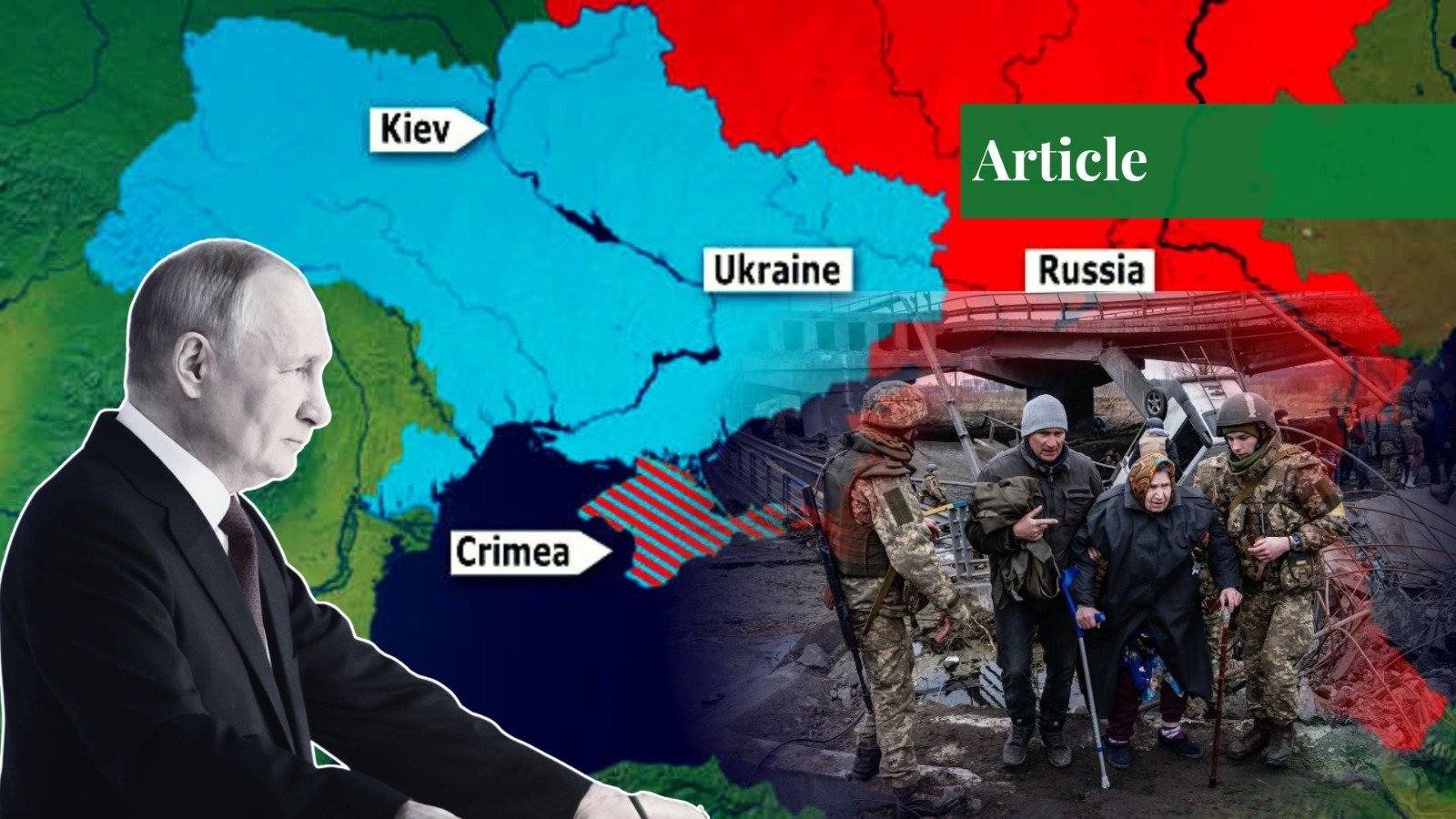The way that Russia has gotten involved in other states’ borders violates some of the most important principles of international relations, global order, and state relations. Violations of military invasions, the taking of new territories, and the recognition of breakaway states have accumulated over the past decade. These actions have had negative consequences for the actors involved and have led to consequences. The focus of these actions is to analyze violations of Russia’s accountability in the international legal order on the principles of peace, diplomacy, and the everyday life of citizens.
What Is Sovereignty, and Why Is It Important?
Sovereignty is the legal right of states to monopolize the territory and the legal order and the political agency and to make and carry out the political decisions within their territory. This is the basis for the United Nations treaty and almost all international laws, and even the Helsinki treaties. It constitutes violence to break the sovereignty of a state, whether through the annexation of territories or by permitting violations of the order of a state.
The consequences of violating a state’s sovereignty include the collapse and disorder of an international region, the disruption of state relations, and the erosion of international standards designed to preserve the order of nations and maintain the stability of states. The consequences for the state are considerably worse. The state can lose a significant amount of territory, its governmental order can be displaced, its population can be rendered stateless, and the order of the state can be beset with prolonged disorder.
Ukraine: Invasion & Annexation
In 2014, Russia took control over Crimea, which was seen as a violation of international law, and this led to a geopolitical crisis. In 2022, Russia recognized Donetsk and Luhansk as territories and then invaded Ukraine. These violations constitute Ukraine’s political independence as mentioned in Article 2(4) of the UN Charter.
Recognizing Breakaway Regions
Russia recognized Donetsk and Luhansk as independent territories of Ukraine, which most of the world does not accept. The President of Ukraine, Zelenskyy, and many nations view this as a violation of Ukraine’s authority over its land.
Incursion & Airspace Violations
Russia’s military aircraft have breached the airspace of NATO countries. MiG-31 fighter jets entered Estonian airspace and did not report their arrival or give any reason. Estonia asked for a NATO Article 4, which allows members to speak on a situation where one of the country’s security is threatened.
The Russian View on These Actions
Moscow sees these as justified actions for the protection of Russian-speaking people abandoned in other countries. Russia also claims these actions are a protection of its borders from NATO and a protection of its territory from other nations. Sometimes, Russia mentions historical and cultural connections or self-determination by certain ethnic groups or regions as an excuse. Most of the time, these arguments don’t hold legally.
International law permits self-defense when a state is being attacked, and lawfully signed agreements by the Russian Federation, such as the Budapest Memorandum, do not allow for the gaining or losing of territory by force. The recognition of breakaway regions or the annexation of whole areas without the said consent is seen as a violation of agreements and norms and of Russia’s own legal obligations in the past.
Consequences of These Violations
Conflicts & Instability
When sovereignty is violated, conflicts are almost certain. Russia’s violation of Ukraine’s sovereignty has been used to justify a protracted war that has resulted in death, human displacement, destruction of infrastructure, loss of previously established economic growth, and billions of dollars in economic sanctions. Each of these gains the state and politically nettlesome regions of the world, the anticipation of border conflicts, loss of rights, and weak or collapsing state structures.
Global Defiance Instability
Every country relies on an unspoken agreement. For example, “Don’t invade your neighbor.” These agreements depend on treaties and mutual respect. It is self-evident that the higher the stake, the more unstable the situation. Other nations have to and will prepare for the aggressive movements of their neighbors. They will have to assert their own ground and territorial claims. They have a right to, and it is a matter of world stability.
Economic Consequences
Because of what Russia has done, Russia has to deal with sanctions and penalties. Other countries are placing penalties that are economic, military, and diplomatic. These penalties create problems for people. There is economic inflation, there is a lack of investment, and there are shortages.
Trust & Diplomacy Undermined
In cases of diplomatic breakdown, there are geopolitical consequences. There is a response of military cooperation and alliance-building of the friends of the violated party. The UN and the rest of the world hope to maintain the importance of soft agreements and the trust of the countries that sign them.
In October 2022, the United Nations General Assembly established resolution ES-11/4. This resolution orders Russia to withdraw and escalates the steps to document and declare the annexation of portions of Ukraine as “illegal and void” (UNGA ES-11/4).
Human Costs
Displaced populations, loss of civil rights, disruption of daily life, and fear are very real consequences. People in regions under Russian control often report censorship, restricted movement, forced changes in education or law, and sometimes human rights abuses. The sovereignty violations affect the individual every day, not just abstract international law.
Economic Sanctions
In response to the annexation of territories and the invasion of Ukraine, several countries around the globe placed trade, economic, and visa sanctions on Russia. This comprises a ban on the export of “sensitive” goods, the freezing of the assets of specific leaders, and the placing of travel restrictions and bans.
Military Aid and Support
Ukraine receives military and financial aid from a number of countries. NATO has increased its presence and has been “hardened” in Eastern Europe, which involves military airspace and border crossings likely to invoke diplomatic protests and formal treaty actions (Estonia under NATO Article 4).
Human Rights Advocacy
War-related crimes, abuses, and displacement caused by conflicts are documented by international courts, treaties, various treaties, and investigative NGOs. Displaced persons and family members of the dead accrue and file legal claims to document the crimes. Russia is also pressed in international legal forums on its obligations to answer as prescribed by international law.
The Impact on the Global Order & Smaller Countries
The reality is that Russia’s actions are not only about Ukraine. It’s about the response of smaller states. If powerful nations suffer little consequence for breaching a smaller country’s sovereignty, this sets a very dangerous pattern. Nations in Africa, Asia, and Latin America may worry that border disputes, ethnic minorities, and historical grievances may result in similar claims against them. It diminishes what countries worry is guaranteed under international law. For people in Ukraine, these violations mean constant existential dread. For the international community, it means an arms race, and it threatens to break the international norms of sovereignty and territorial integrity.
Can the System Push Back?
But it requires political determination, operational cohesion, and joint enforcement at all levels. Each state is to respond to violations and uphold treaties collectively. Global institutions ought to ensure that the enforcement of norms is balanced. All three of the spheres—diplomatic, economic, and legal—must be synchronized. The media and society easily shift the pressure and the focus.
Final Take
The geopolitical subtext is but a consideration. It is a deep interruption of order, trust, and safety in the modern world. It touches the law, the economy, and the diplomacy of human suffering. It is the most profound crisis of the modern world. The violation of sovereignty must not be tolerated. It is unheard of.
If you want to submit your articles and/or research papers, please visit the Submissions page.
To stay updated with the latest jobs, CSS news, internships, scholarships, and current affairs articles, join our Community Forum!
The views and opinions expressed in this article/paper are the author’s own and do not necessarily reflect the editorial position of Paradigm Shift.
Imtiaz Munir is currently pursuing a BS in English with a focus on linguistics and literature at Bahria University, Islamabad. He is an active reader with a strong grasp of political theories, having explored concepts like justice and forms of government. He enjoys analyzing political themes with a philosophical approach. At present, he is working on his research thesis to meet academic requirements and further his interest in critical analysis.



